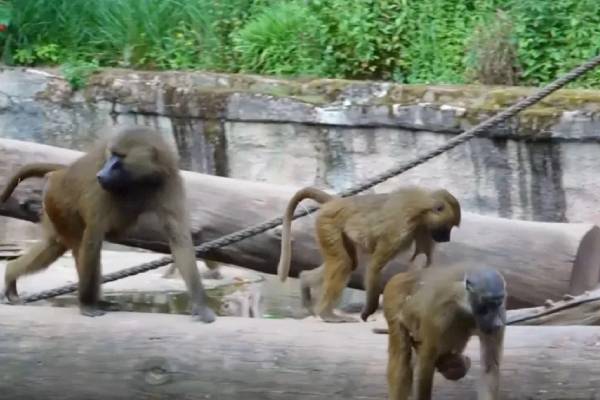A zoo in the southern German city of Nuremberg has come under heavy criticism after it culled 12 healthy Guinea baboons due to overcrowding in their enclosure — a move animal rights groups have condemned as avoidable and illegal.
The Tiergarten Nürnberg zoo confirmed on Tuesday that the baboons, which were not pregnant females or part of any scientific study, were shot and subsequently fed to predators within the zoo. The animals’ remains were also used for research purposes.
The cull triggered a protest at the zoo’s entrance, where seven animal rights activists were arrested after scaling the fence. One woman glued her hands to the ground in protest. The zoo had announced a temporary closure earlier that day citing “operational reasons.”
Zoo director Dag Encke said the decision to euthanise the animals followed “yearslong consideration”, and insisted it complied with guidelines set by the European Association of Zoos and Aquaria (EAZA).
He defended the move as a “legitimate last resort to preserve the population”, citing increasing aggression among the baboons due to overcrowding and the lack of re-homing options.
The zoo said it had previously tried to control the growing baboon population — which had risen to over 40, exceeding the enclosure’s capacity of 25 — by implementing contraceptive measures and seeking placements at other institutions, both of which failed.
However, the cull has drawn fierce backlash from animal welfare advocates. Christoph Maisack, head of the German Legal Association for Animal Protection Law, argued that poor breeding management could not justify killing healthy animals.
Pro Wildlife, a German animal rights organisation, described the act as “avoidable and illegal”, and said it reflected “irresponsible and unsustainable breeding policies for decades.”
A criminal complaint has been filed against the zoo by animal rights groups.
European zoos have previously faced controversy for similar actions. In 2014, Copenhagen Zoo sparked global outrage after it euthanised a healthy giraffe named Marius and broadcast its dissection online.
The Nuremberg zoo’s actions have reignited debates over animal welfare, captive breeding ethics, and the responsibilities of modern zoos.





